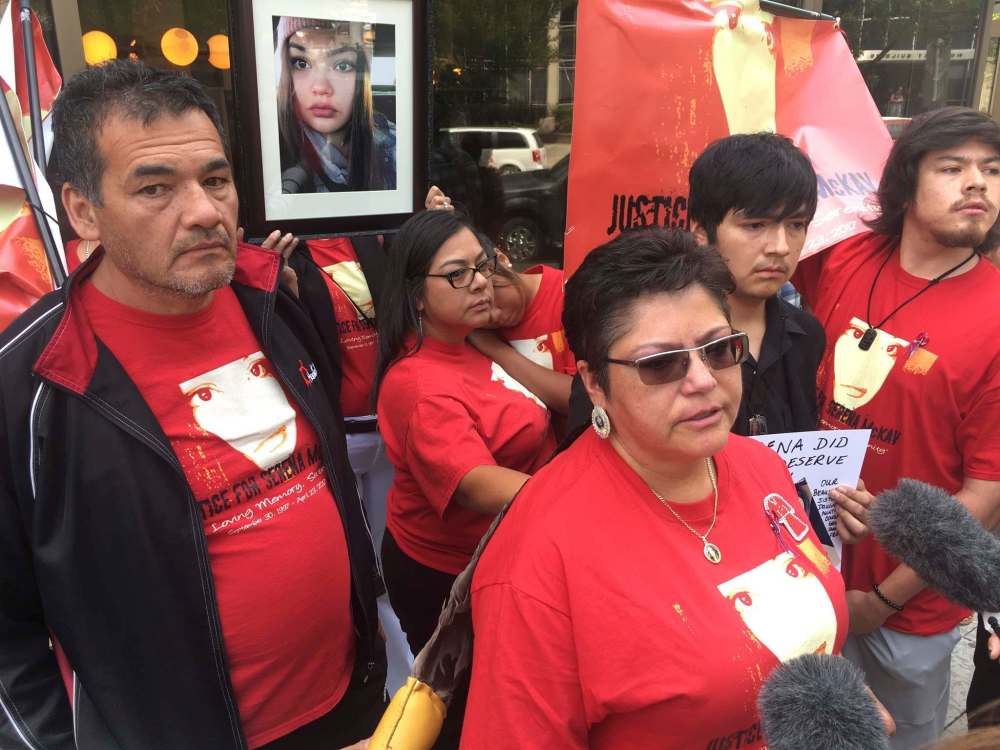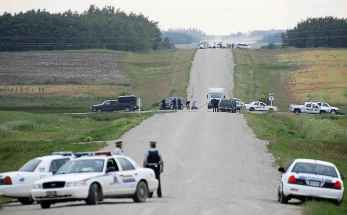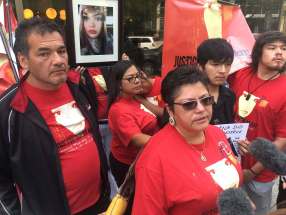Three-year youth sentence for teen in beating death of Serena McKay
Read this article for free:
or
Already have an account? Log in here »
To continue reading, please subscribe:
Monthly Digital Subscription
$0 for the first 4 weeks*
- Enjoy unlimited reading on winnipegfreepress.com
- Read the E-Edition, our digital replica newspaper
- Access News Break, our award-winning app
- Play interactive puzzles
*No charge for 4 weeks then price increases to the regular rate of $19.00 plus GST every four weeks. Offer available to new and qualified returning subscribers only. Cancel any time.
Monthly Digital Subscription
$4.75/week*
- Enjoy unlimited reading on winnipegfreepress.com
- Read the E-Edition, our digital replica newspaper
- Access News Break, our award-winning app
- Play interactive puzzles
*Billed as $19 plus GST every four weeks. Cancel any time.
To continue reading, please subscribe:
Add Free Press access to your Brandon Sun subscription for only an additional
$1 for the first 4 weeks*
*Your next subscription payment will increase by $1.00 and you will be charged $16.99 plus GST for four weeks. After four weeks, your payment will increase to $23.99 plus GST every four weeks.
Read unlimited articles for free today:
or
Already have an account? Log in here »
Hey there, time traveller!
This article was published 02/08/2018 (2691 days ago), so information in it may no longer be current.
Anger erupted in a Winnipeg courtroom Thursday, as a judge ruled a teenage girl who killed 19-year-old Serena McKay will serve a three-year youth sentence for manslaughter.
The teen, who will turn 18 on Sunday, is expected to spend two years in custody and another year on supervision in the community as she receives treatment for alcohol and drug abuse as part of her sentence.
It is the maximum youth sentence that can be imposed for manslaughter under the Youth Criminal Justice Act, the same legislation that prohibits publication of the accused’s identity.

Provincial court Judge Lindy Choy’s decision was met with rage from McKay’s stepfather and a family friend, who shouted at the teen as she was ushered out of the courtroom and who swore at a group of court sheriffs who tried to defuse the confrontation.
“No justice!” Roland Mousseau yelled in the courtroom, where McKay’s family and friends wore red T-shirts bearing her name. Moments later, after the family gathered in a prayer circle on the front steps of the courthouse, Mousseau said he questioned why the court deemed McKay’s killers worthy of lower sentences because they were underage at the time of the attack.
“I’m very upset by the justice system,” McKay’s stepfather said.
The Crown had asked for a seven-year adult prison sentence for the teen, who was 16 when she and a 17-year-old girl drunkenly beat McKay after an April 2017 house party on Sagkeeng First Nation. The pair recorded the attack, and left a helpless McKay to freeze to death while they went back inside and boasted about the two-against-one fight.
The then-17-year-old co-accused sent videos of the beating to friends on social media, and copies — showing McKay on the ground, her swollen and bloodied face being pummelled and stomped as the girl sentenced Thursday screamed “I don’t want to f—ing see her alive!” — were posted online for the world to see.
The videos attracted international attention to the last moments of McKay’s life, and, Choy said, to the “outstanding cruelty” the two teens inflicted on their high school classmate.
“What could she have possibly said or done in the space of a few hours to warrant you beating her so badly?” Choy asked as she delivered her decision. “It’s clear that you had no mercy.”
But the judge said she gave “significant weight” to the opinion of a forensic psychiatrist who assessed the teen and found she was acting like an adolescent at the time of the attack, not like an adult.
“I find that as appalling and cruel as (her) actions were, she did not exhibit adult-like behaviour and judgment,” Choy said.
The teen’s older co-accused pleaded guilty to second-degree murder and received the maximum seven-year youth sentence for that charge.
The younger girl was blackout drunk when she started the beating, so she couldn’t legally have had the intent to commit murder, Choy acknowledged.
“We didn’t get what we deserved. My daughter didn’t get what she deserved.” – Delores Daniels, McKay’s mother
She pleaded guilty to the lesser charge of manslaughter, and her defence lawyers argued she should receive the maximum youth sentence rather than being imprisoned in an adult penitentiary. She was diagnosed with post-traumatic stress disorder and used drugs and alcohol to cope with being sexually assaulted more than once in her youth, court heard.
Because her co-accused was sentenced as a youth, it made sense the younger girl should serve a youth sentence as well, Choy said, noting unlike her co-accused, she spoke to a school counsellor about the beating the day after McKay’s body was found and later turned herself in to RCMP.
The judge backtracked slightly after she announced her intention to impose two years of probation at the end of the teen’s three-year sentence, only to be informed by Crown and defence lawyers the law doesn’t allow for probation in cases such as this.

Crown prosecutor Jennifer Comack declined to comment Thursday when asked if the Crown would consider appealing Choy’s decision.
McKay’s family said they feel the justice system has failed them.
“We expected an adult sentence,” McKay’s mother, Delores Daniels, said outside court, flanked by her sons, Mousseau and other relatives. They’ll remember McKay as a strong young woman who, just two months away from earning her high school diploma, was in the process of getting her education and bettering her life when she was killed, Daniels said.
“We didn’t get what we deserved. My daughter didn’t get what she deserved.”
Serena McKay was watching in the courtroom when Choy sentenced her older brother, Alexander, for robbery, he recalled Thursday, questioning the judge’s decision to impose a three-year sentence for the death of his sister.
“The last time I seen her was in the courtroom when I got sentenced. That was the last time I seen her,” he said Thursday.
“It’s important to me (to be here) because she’s my little sister and I gotta be here to support her. You know, I missed out on so much these past years for being incarcerated and I just, I feel like I gotta make it up to her somehow for being away.”
The penalty for taking a life Choy imposed Thursday seemed too similar to the one she imposed on him for crimes in which he didn’t physically hurt anyone, he said.
Provincial court records show Choy sentenced him in October 2016 to 22.5 months less a day in jail, in addition to 7.5 months’ credit for time in custody, for robbery and possession of a weapon.
“This doesn’t make any sense to me,” he said.
katie.may@freepress.mb.ca
Twitter: @thatkatiemay

Katie May is a general-assignment reporter for the Free Press.
Our newsroom depends on a growing audience of readers to power our journalism. If you are not a paid reader, please consider becoming a subscriber.
Our newsroom depends on its audience of readers to power our journalism. Thank you for your support.













